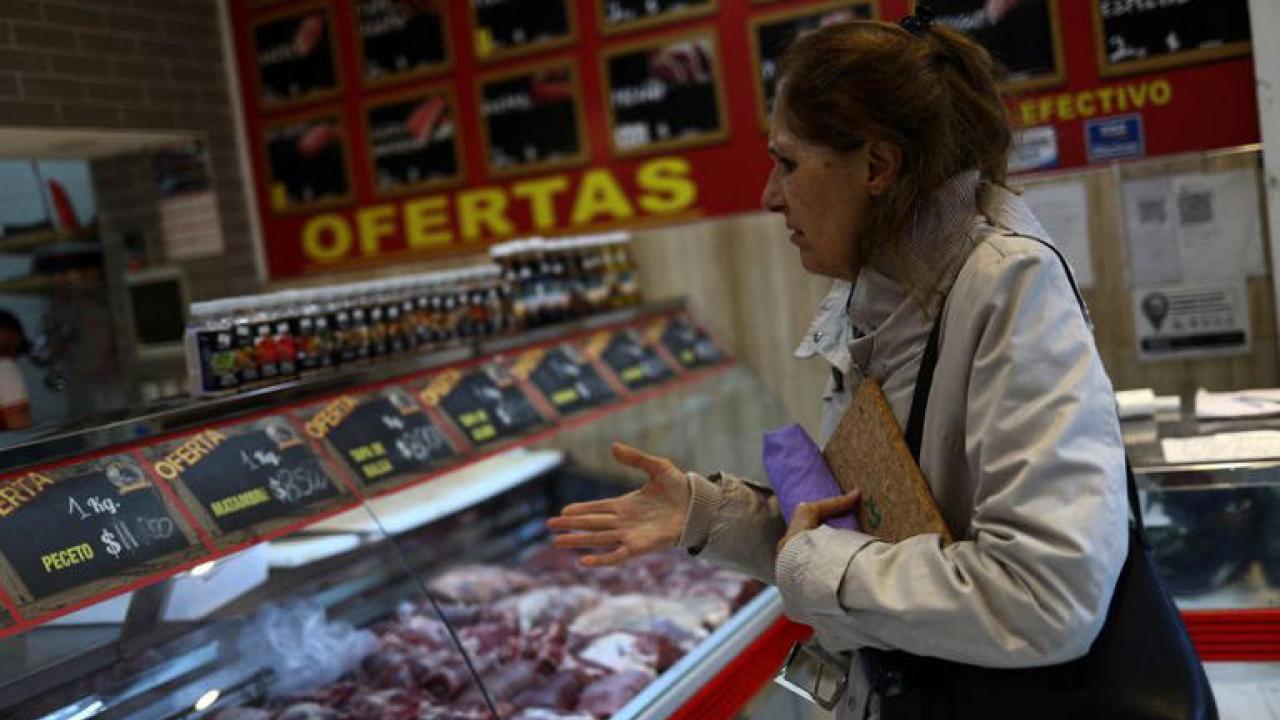
The South American country registered inflation of 20.6% and 13.2% in January and February, respectively, compared to a historic 25.5% in December, according to official figures from Indec.
Argentina's Consumer Price Index (CPI) rose 11% in March, completing three consecutive months of decline, the National Institute of Statistics and Censuses (INDEC) said on Friday.
The South American country recorded inflation of 20.6% and 13.2%, respectively, in January and February this year, compared to a historic 25.5% in December.
INDEC also reported that inflation increased 51.6% in the first quarter of 2024 and by 287.9% in the last 12 months to March.
The official data was below analysts expected median increase of 12% in the month, according to a Reuters poll.
Javier Milei's government remains optimistic about its measures to stop one of the highest inflation rates in the world. Since inaugurated in December, the government has taken measures, such as the devaluation of the Argentine peso and cuts in public spending. These are initiatives that seek to reverse the deep fiscal deficit, attract foreign investment and moderate prices.
"Inflation is declining rapidly," Economy Minister Luis Caputo wrote in X on Wednesday.
Meanwhile, poverty is increasing and economic activity has stagnated, exacerbating the difficulties endured by millions of people. Prices, from groceries to healthcare, continue to rise sharply, even in dollar terms.
"There is no decrease in inflation, it's just words," declared María Gen, a citizen who recently bought fruits and vegetables at a market in San Fernando, in the outskirts of Buenos Aires, earlier this week. "I took advantage of coming to the market thinking that the prices were going to be cheaper and they are just as high as in my neighborhood," the woman told Reuters .
It should be noted that according to Indec, the monthly variation of the basic food basket (CBA) was 10.9% in March, while the total basic basket (CBT) was 11.9%. The latter includes not only the minimum nutrients that an adult between 30 and 60 years old should consume, but also non-food goods and services.
In contrast to the crisis, analysts and economists say that core inflation has shown signs of declining. But 11% is still much higher than the price increase most countries see in an entire year.
"Inflation is declining rapidly, but increases in (public service) rates are coming and that will prevent it from falling as much as it could," Argentine economic analyst Aldo Abram said ahead of Friday's data.
However, the government was "nipping in the bud" the risk of hyperinflation, he added. Presidential spokesman Manuel Adorni told reporters Thursday that the government would end inflation, although it was difficult to say how quickly.
"The end of inflation will be a reality," he said. "When? Of course we don't know, because we don't have a crystal ball."









